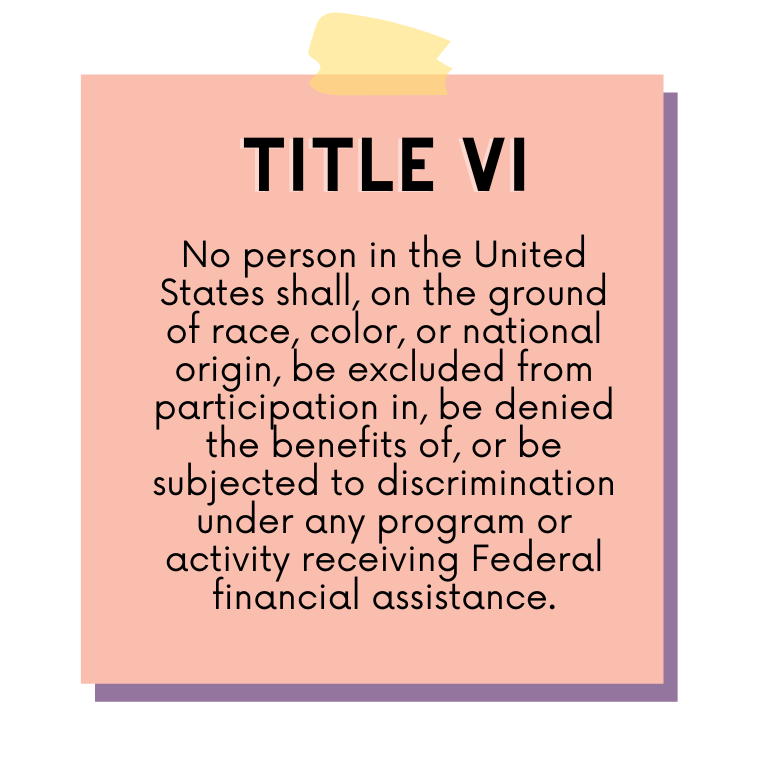A.Students have rights when it comes to what they can be disciplined for and how they are disciplined.
What protections do I have when it comes to my school’s disciplinary policies?
Schools can develop disciplinary policies, including dress codes, but these must comply with laws protecting students’ civil rights and liberties. Under Title VI of the Civil Rights Act of 1964 (Title VI), a school cannot discriminate by unevenly enforcing a disciplinary policy (including dress codes) against only a group of students of a particular race, color, or national origin.
*Note, Title VI is a federal law that applies to both public and private schools if those schools receive some form of federal funding.
What protections do I have when it comes to my school’s dress code policies?
Under Title VI, a school cannot discriminate based on how a person looks, dresses, or speaks, if it is linked to their ethnicity or ancestry. And under the First Amendment, if a school does allow, for example, t-shirts with slogans, buttons, or wristbands, it must allow all clothing or accessories regardless of the views expressed.iii Your school can only limit messages that are obscene or disruptive to learning.
iii See Tinker v. Des Moines Independent Community School District, 393 U.S. 503 (1969); https://www.aclu.org/other/tinker-v-des-moines-landmark-supreme-court-ru...
What protections do I have BEFORE my school disciplines me?
Before excluding students from the classroom for any disciplinary infraction (including dress code violations), schools must provide students with due process. This includes:
- Communicating rules to parents and students in advance so that you understand what conduct is/is not allowed (i.e., your school’s policies cannot be vague).
- Having fair and reasonable procedures BEFORE imposing disciplinary actions that exclude you from the classroom, including:
- 1) Notice of what the student is accused of and basis of the accusation;
- 2) Fair opportunity to respond; and,
- 3) Decision based on the available evidence.
And students receiving educational assistance under the Individuals with Disabilities Education Act (IDEA) and Section 504 of the Rehabilitation Act of 1973 have additional protections during disciplinary actions.



